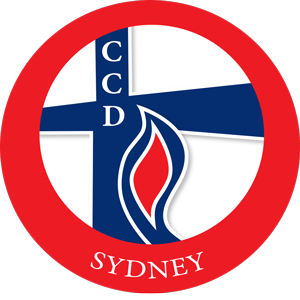GOD, RELIGION AND LIFE
Values and Attitudes – It is intended that the students will be able to:
- appreciate what Christians share in common and the quest for Christian unity
- understanding good triumphs over evil
Knowledge – It is intended that the students will be able to:
- identify the different beliefs and practices of the major Christian denominations
- identify the elements of good and evil in personal and group experiences
Skills – It is intended that the students will be able to:
- compare the beliefs and practices of various Christian denominations
- investigate experiences of good and evil in life and in the Scriptures
SCRIPTURE AND JESUS
Values and Attitudes – It is intended that the students will be able to:
- appreciate the breadth and nature of the Scriptures, and the variety of literary styles and objectives of their writers
- appreciate the relevance of the teachings of Jesus to their lives
Knowledge – It is intended that the students will be able to:
- recognise the types of writing contained in the Old and New Testaments
- identify the main elements of one synoptic Gospel’s portrayal of Jesus
Skills – It is intended that the students will be able to:
- distinguish between literal and figurative language
- apply Gospel themes to a variety of modern day situations
THE CHURCH AND COMMUNITY
Values and Attitudes – It is intended that the students will be able to:
- appreciate the relevance of the Church’s teachings to their lives
- appreciate the relevance of a theme or historical period to the life and mission of the Church today
Knowledge – It is intended that the students will be able to:
- identify key teachings of the Catholic Church, especially those found in the Nicene Creed
- demonstrate knowledge of the key aspects of an important theme or period within Church history
Skills – It is intended that the students will be able to:
- use religious language in relation to beliefs and practices of the Catholic Church
- pose questions, research and communicate information about key aspects of an important theme or period in Church history
PRAYER, LITURGY AND SACRAMENTS
Values and Attitudes – It is intended that the students will be able to:
- develop an awareness and appreciation of the major Seasons and celebrations in the Church’s liturgical year
- value the need for reconciliation and healing as unifying forces for the community
Knowledge – It is intended that the students will be able to:
- identify how the Seasons of Christmas and Easter relate to the life of Jesus Christ
- explain the importance of the sacraments of Penance and Anointing of the Sick in the Catholic tradition
Skills – It is intended that the students will be able to:
- demonstrate through word, symbol or art a personal response to, Christmas and Easter
- prepare specific aspects of liturgies and prayers relating to the sacraments of healing
THE MORAL LIFE
Values and Attitudes – It is intended that the students will be able to:
- appreciate the need for personal moral convictions
- be open to the wisdom of the Ten Commandments and the Beatitudes
Knowledge – It is intended that the students will be able to:
- identify ways in which individuals develop personal responsibility and moral maturity
- demonstrate understanding of the Ten Commandments and the Beatitudes as guides for living the Christian life
Skills – It is intended that the students will be able to:
- analyse situations which require moral decision-making
- apply the teachings of the Ten Commandments and Beatitudes to a variety of life situations
Year 9
GOD, RELIGION AND LIFE
- Creeds were developed in the very early centuries of the Church, and began originally as baptismal formulas.
- The Apostles’ and Nicene Creeds focus and elaborate principally on the dogmas of the Blessed Trinity and the Incarnation. It is from these beliefs that all other teachings flow.
- Jesus was conceived in Mary’s womb by the power of the Holy Spirit.
- All things created by God are good.
- Evil is a reality in this world.
- Human evil is a result of the choices people make.
- Christians should work for good and for the overcoming of evil according to the teachings of the Church.
THE SCRIPTURES AND JESUS
- The Word of God, in the Scriptures and the Church’s Tradition, has been inspired by the Holy Spirit.
- The Holy Spirit was active and present throughout Jesus’ life, guiding him in his saving ministry.
- Christians are encouraged to read and study Holy Scripture in line with the teachings of the Church.
- The Holy Spirit always guides the Church.
THE CHURCH AND COMMUNITY
- God wants us to live good and holy lives based on the teachings of Scripture, Tradition and the Church.
- Jesus came to establish God’s reign on earth. He worked many miracles to show his love and care for God’s people. He cured many sick people.
- From Holy Scripture we learns that Mary was chosen by God to be the mother of our Saviour. As Jesus is both God and man, Mary is the Mother of God.
- Jesus endorsed marriage and family life at the wedding at Cana.
PRAYER, LITURGY AND THE SACRAMENTS
- We receive the Holy Spirit in a special way in the Sacrament of Confirmation to nourish and strengthen us in the work God calls us to do.
- We need to see, hear and feel the healing touch of God. Jesus gave us the Sacrament of Reconciliation to do this.
- The disciples anointed many with oil that were sick and healed them. (Mark 6:12-13)
- Today in the Church we have the sacrament of the Anointing of the Sick to confer grace on seriously ill persons.
THE MORAL LIFE
- God is our loving creator who wills our happiness.
- Our first parents, Adam and Eve, were created in an original state of holiness and justice. Through sin, this original state became impaired.
- The Beatitudes delivered in the Sermon on the Mount elaborate God’s plan for happiness and peace in this world and in the next.
Year 10
GOD, RELIGION AND LIFE
- God is love
- God so loved the world that he sent his only Son, Jesus, for the salvation of all people.
- The virtues of faith, hope and love are essential for living a Christian life.
- God created man and woman with marriage and family life embedded in their very nature .
- Jesus, the Son of God, was born into a family with Mary as his mother and St. Joseph as his foster-father.
- Jesus is the Way, the Truth and the Life because he is the unique Son of God and Saviour of the world.
- Jesus loves us and wants each of us to know the Father’s love.
THE SCRIPTURES AND JESUS
- Jesus is the Messiah, the Christ. He fulfilled the Old Testament prophecies as well as his own.
- In his public ministry, Jesus preached the good news about God’s kingdom, forgave sin and worked many miracles.
- The Beatitudes lie at the heart of Jesus’ teachings.
- Jesus Christ sent the Holy Spirit to the Apostles on Pentecost day, giving them the power to spread the Church in his name.
THE CHURCH AND COMMUNITY
- Marriage is a holy covenant between a man and a woman mirroring God’s covenant love for his people.
- The family needs support from Church and society.
- Over the past two thousand years there have been many splits in the Church.
- There are Eastern Churches that are not in union with Rome, yet share most beliefs with their Eastern Catholic counterparts.
- During the 1500’s the Protestant Reformation occurred in the West.
- The Second Vatican Council called for Christians to work for re-unification between the Catholic Church and Protestant denominations
PRAYER, LITURGY AND THE SACRAMENTS
- The Eucharist is the source and summit of the Christian life.
- At the Last Supper, Jesus instituted the Blessed Eucharist.
- The early Christians met together to celebrate the Eucharist on the Lord’s Day, Sunday-the day of the resurrection.
- St. Ignatius of Antioch (+107) and St. Justin Martyr (+165) wrote on the centrality of the Liturgy celebrated by the bishop and the importance of the Eucharist as the Body and Blood of Christ.
THE MORAL LIFE
- Human life is precious and must be respected and protected from conception until natural death.
- As Christians we are called to live moral lives, which entails doing God’s will, which is revealed through his Church.
- The Church draws from both Scripture and Tradition when teaching us how we should live and act.
- God gives us the grace to choose to change our lives and follow his Son, Jesus.



